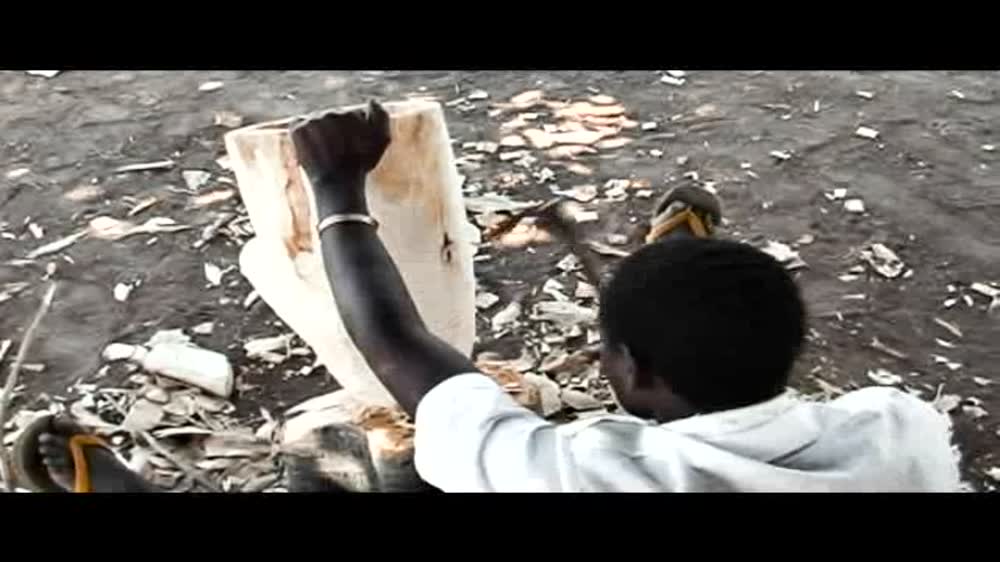In 2004, film-maker / ethnomusicologist Frank Gunderson spent several days witnessing master drum-maker Phillipo Barabara in his work environs, located in the town of Kissesa, near Mwanza, in the Suku. . . uma region of western Tanzania. Gunderson was interested in filming Barabara while he made a bunuunguli ng'oma, or 'porcupine hunter drum.' The Sukuma traditionally have special clan-based organizations that use music to accompany their labor activities, which include farming, as well as hunting wild animals such as poisonous snakes, or porcupines which are pests to crops. The hunters use drum-based music to distract the animals so that they can be caught. The film documents the entire process of making the drum - from choosing and cutting down a tree, to carving and shaping the tree trunk, to cutting and placing a cow-hide skin on the drum frame, and to finally, testing out the sonority and playability of the drum. Construction of this drum spanned over three days. Throughout the filming process, the drum maker and his apprentices were asked repeatedly, in Kiswahili, to describe what they were doing, as well as to explain the types and functions of the tools they were using. While editing, special attention was given to the chronological steps involved in creating the drum. The sonic aspects of all the various labors associated with making the drum are evident throughout. Barabara and his associates ruminate over the declining interest in traditional folk arts such as drum-making, and how they have decided to persevere nevertheless. During these conversations, several random youth come by and share their intense love for a bongo flava (hip hop) artist known as Dudu Baya (literally, 'Evil Insect'), a local musician who recently broke into the East African popular music scene. The film thus captures the fascinating social dialectic inherent in the co-existence of traditions such as Sukuma drum-making, generally associated with pre-modern lifeways, together with music cultures such as hip-hop, aligned with more modern and post-modern social experiences. Anyone interested in anthropology, ethnomusicology, folklore, world music pedagogy, or African expressive culture, will find great value in this film show more









